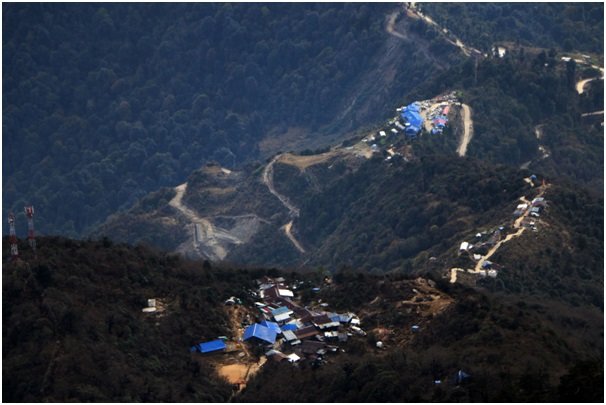Ensuring Justice: An In-depth Look at the Appointment Procedure of Judges in Nepal's High Courts and Supreme Court

The appointment of judges in Nepal's high courts and Supreme Court is a crucial process that shapes the judicial system and ensures justice and fairness. It is governed by the Constitution of Nepal and supervised by the Judicial Council. However, there are concerns about the lack of transparency, political interference, and limited diversity among judges. This article explores the significance of the appointment procedure, its challenges, and potential reforms, providing an engaging overview of the topic.
The Constitutional Framework:
The appointment of judges in Nepal's high courts and Supreme Court follows the guidelines outlined in the Constitution of Nepal. Specifically, Articles 153 and 154 of the Constitution establish the Judicial Council as the responsible body for recommending candidates for judicial appointments. The Judicial Council comprises the Chief Justice of Nepal, the most senior judges of the Supreme Court, the Attorney General, and three additional members appointed by the President. The Constitution sets specific criteria, qualifications, and prerequisites for individuals aspiring to become judges. To be eligible for appointment, a candidate must be a Nepali citizen, possess a bachelor's degree in law, and have a minimum of five years of experience in the legal profession. Additionally, judges are expected to demonstrate high moral character and integrity, as emphasized by the Constitution.
The appointment procedure is as follows:
- The Judicial Council invites applications from qualified candidates.
- The Judicial Council shortlists the candidates and conducts interviews.
- In the context of the Supreme Court Judge, the Judicial Council makes recommendations for the appointment of judges to the President and The President appoints judges on the recommendation of the Judicial Council.
- In the context of the High Court Judge, the Chief Justice shall on recommendation of the Judicial Council, appoint the Chief Judge and Judges of the High Court.
- The appointment procedure is designed to ensure that judges are appointed based on merit and qualifications, rather than political considerations. However, there have been concerns about the transparency of the process and the potential for political interference.
In recent years, there have been calls for reforms to the appointment procedure. Some stakeholders have suggested that the Judicial Council should be expanded to include more members from civil society and the legal fraternity. Others have suggested that the appointment process should be made more transparent and that the public should be given a greater role in the selection of judges.
Judicial Independence and Impartiality:
The principles of judicial independence and impartiality are essential to the functioning of a fair and just judiciary. Judges must be free from political interference and must be able to decide cases impartially, without fear or favor. The appointment procedure of judges is a critical factor in ensuring the independence and impartiality of the judiciary. The Constitution of Nepal guarantees the independence of the judiciary. The appointment procedure of judges in Nepal is designed to ensure their independence and impartiality. The Judicial Council, which is responsible for making recommendations for the appointment of judges, is a constitutional body that is independent of the executive and legislative branches of government. The Judicial Council is also required to consult with the public before making recommendations for the appointment of judges. However, there have been concerns about the transparency of the appointment procedure and the potential for political interference. Some stakeholders have argued that the Judicial Council should be expanded to include more members from civil society and the legal fraternity. Others have argued that the appointment process should be made more transparent and that the public should be given a greater role in the selection of judges. The appointment procedure of judges is a complex issue, and there is no easy solution. However, it is clear that the independence and impartiality of the judiciary are essential to the functioning of a fair and just legal system. The appointment procedure of judges must be designed to ensure that judges are appointed on the basis of merit and qualifications, rather than political considerations.
The following are some measures that can be taken to ensure the independence and impartiality of the appointment procedure:
- The Judicial Council should be expanded to include more members from civil society and the legal fraternity.
- The appointment process should be made more transparent, and the public should be given a greater role in the selection of judges.
- The appointment procedure should be subject to independent oversight.
- By taking these measures, Nepal can ensure that the appointment procedure of judges is fair and transparent and that the judiciary remains independent and impartial.
The Selection Process - Scrutiny and Evaluation:
The selection process for judges in Nepal's high courts and Supreme Court is a multi-stage process that is designed to ensure that the most qualified candidates are appointed. The process begins with the Judicial Council inviting applications from qualified candidates. The Judicial Council then shortlists the candidates and conducts interviews. The Judicial Council also conducts background checks and evaluations of the candidates.
The following are the key stages of the selection process. Basically, these practices are overseen by High Court Judges :
- Application: Candidates who are interested in being appointed as judges must submit an application to the Judicial Council. The application must include the candidate's educational qualifications, professional experience, and other relevant information.
- Shortlisting: The Judicial Council reviews the applications and shortlists the candidates who meet the minimum qualifications. The shortlist is then made public.
- Interviews: The Judicial Council interviews the shortlisted candidates. The interviews are designed to assess the candidates' legal expertise, experience, integrity, and ethical standards.
- Background checks: The Judicial Council conducts background checks on the shortlisted candidates. The background checks are designed to assess the candidates' criminal history and financial status.
- Evaluations: The Judicial Council conducts evaluations of the shortlisted candidates. The evaluations are designed to assess the candidates' overall suitability for appointment as judges.
The selection process is designed to be fair and transparent. The Judicial Council is required to publish all of the information about the selection process, including the names of the shortlisted candidates and the results of the interviews. The Judicial Council is also required to consult with the public before making recommendations for the appointment of judges.
Challenges and Criticisms:
The appointment procedure of judges in Nepal has been criticized by some stakeholders for being opaque and lacking in transparency. There have also been concerns about political interference in the process, as well as the lack of diversity among judges. One of the most common criticisms of the appointment procedure is that it is susceptible to political influence. This is because the Judicial Council, which is responsible for making recommendations for the appointment of judges, is composed of members who are appointed by the President. The President is a political figure, and it is therefore possible that the Judicial Council could be influenced by political considerations when making recommendations for the appointment of judges. Another criticism of the appointment procedure is that it lacks diversity. The judiciary in Nepal is dominated by men, and there is a lack of representation from marginalized groups, such as ethnic minorities and women. This lack of diversity can have a negative impact on the judiciary, as it can make it less representative of the people of Nepal and less responsive to their needs. There have also been concerns about nepotism in the appointment procedure. This is the practice of favoring relatives or friends when making appointments. Nepotism can undermine the integrity of the judiciary, as it can lead to the appointment of unqualified candidates. Finally, there are concerns that the appointment procedure could lead to the appointment of judges who have biases. This could happen if the Judicial Council is not careful to select candidates who are impartial and fair-minded. Biases can affect the way that judges decide cases, and they can lead to injustice.
International Best Practices and Comparative Analysis:
There are several countries that have strong judicial systems and have developed effective appointment procedures. These countries include:
- United Kingdom: The UK has a Judicial Appointments Commission (JAC) that is responsible for making recommendations for the appointment of judges. The JAC is an independent body that is composed of members from the judiciary, the legal profession, and civil society. The JAC is required to publish all information about the appointment process, and it is also required to consult with the public before making recommendations for the appointment of judges.
- United States: The US has a system of judicial selection that varies from state to state. In some states, judges are appointed by the governor. In other states, judges are elected by the people. However, in all states, there are a number of safeguards in place to ensure that the appointment or election of judges is fair and impartial.
- Canada: Canada has a Judicial Council of Canada that is responsible for making recommendations for the appointment of judges. The Judicial Council is an independent body that is composed of members from the judiciary, the legal profession, and civil society. The Judicial Council is required to publish all information about the appointment process, and it is also required to consult with the public before making recommendations for the appointment of judges.
These countries have all adopted a number of best practices in the appointment of judges. These best practices include:
- Independence: The appointment process should be independent of political interference.
- Transparency: The appointment process should be transparent and open to public scrutiny.
- Accountability: The appointment process should be accountable to the public.
- Diversity: The judiciary should be diverse, representing the different communities in society.
These best practices can help to ensure that the appointment of judges is fair, impartial, and transparent. This will help to ensure that the judiciary is independent and competent and that the people have access to justice.
Recommendations for Nepal
Based on the international best practices and comparative analysis, the following recommendations can be made for Nepal:
- Increase the transparency of the appointment process: The Judicial Council should be required to publish all information about the appointment process, including the names of the shortlisted candidates and the results of the interviews.
- Expand the membership of the Judicial Council: The Judicial Council should be expanded to include more members from civil society and the legal fraternity. This will help to ensure that the appointment process is more representative of the people of Nepal.
- Establish an independent oversight mechanism: An independent oversight mechanism should be established to monitor the appointment process and ensure that it is fair and impartial.
- Take steps to increase the diversity of the judiciary: The judiciary should be more diverse, representing the different communities in society. This can be done by taking steps to increase the number of women and ethnic minorities on the bench.
Potential Reforms and Future Outlook:
In conclusion, the appointment procedure of judges in Nepal is a critical issue that requires careful consideration. While there is no easy solution, several potential reforms can improve the process and strengthen the judiciary. Enhancing transparency by publishing relevant information, expanding the Judicial Council's membership to include diverse voices, establishing an independent oversight mechanism, and promoting diversity within the judiciary are all viable steps. By implementing these reforms, Nepal can foster an independent, impartial, and competent judiciary, ensuring access to justice for its people. Public awareness is crucial to the success of these reforms, as it fosters engagement and support for necessary changes. Through this article, we aim to raise awareness, facilitate informed discussions, and contribute to the ongoing dialogue on judicial reform in Nepal.
(Chaudhary is a Law student Pursuing B.A.LL.B From Nepal Law Campus)






Leave Comment